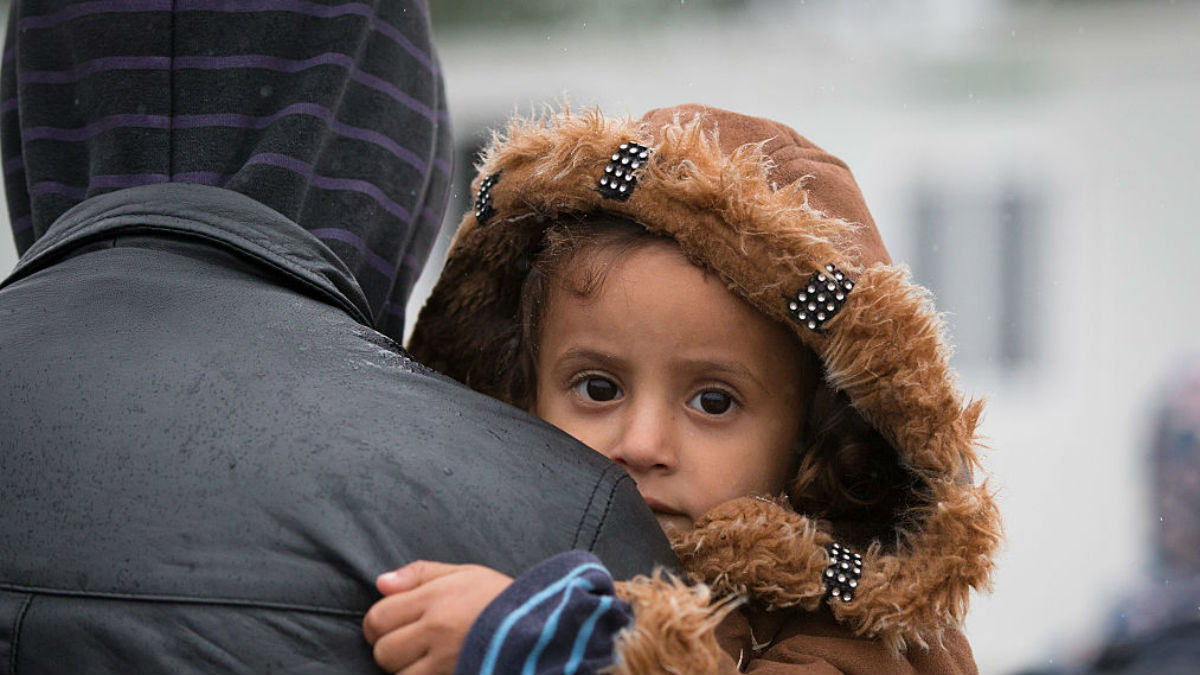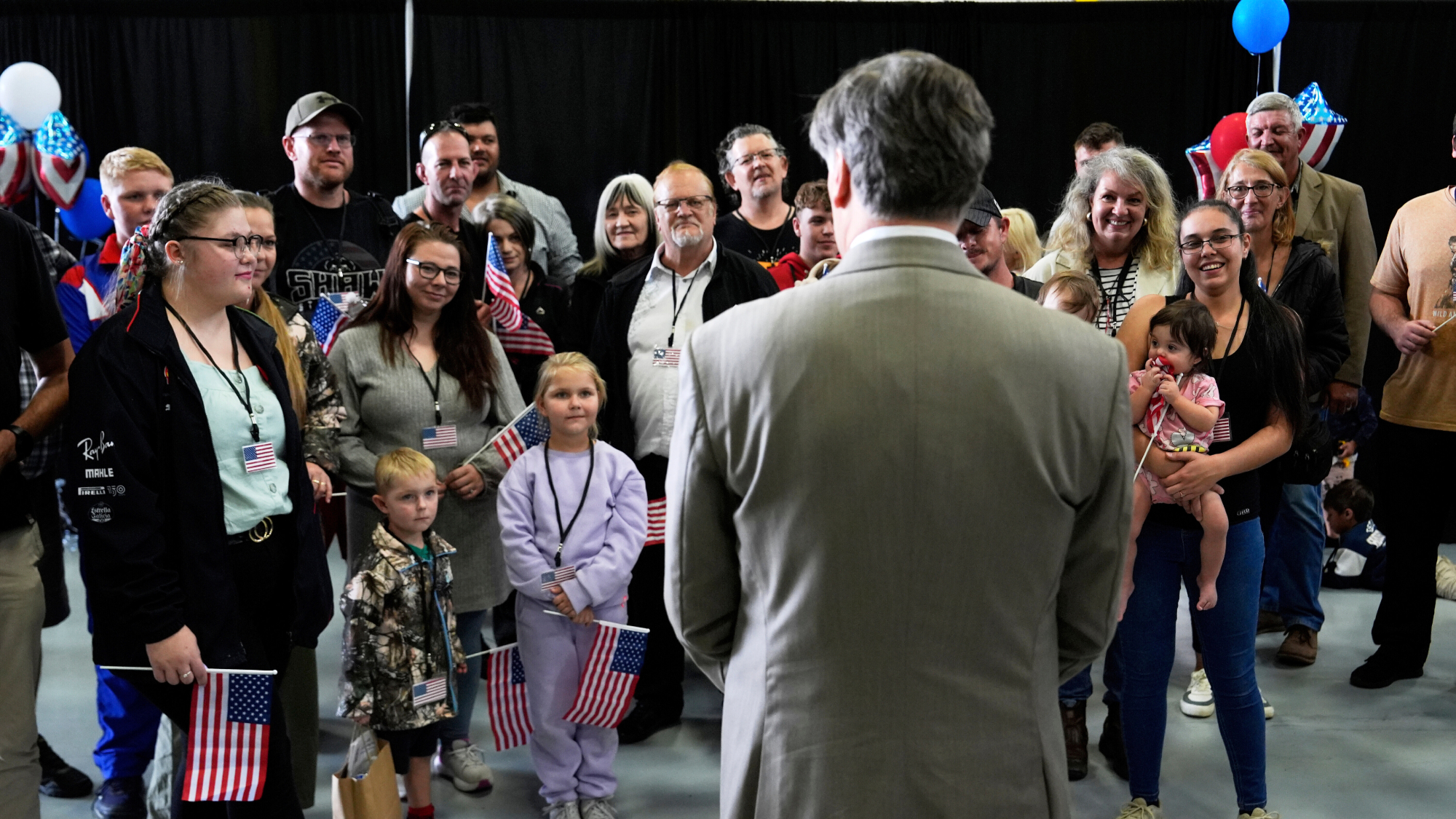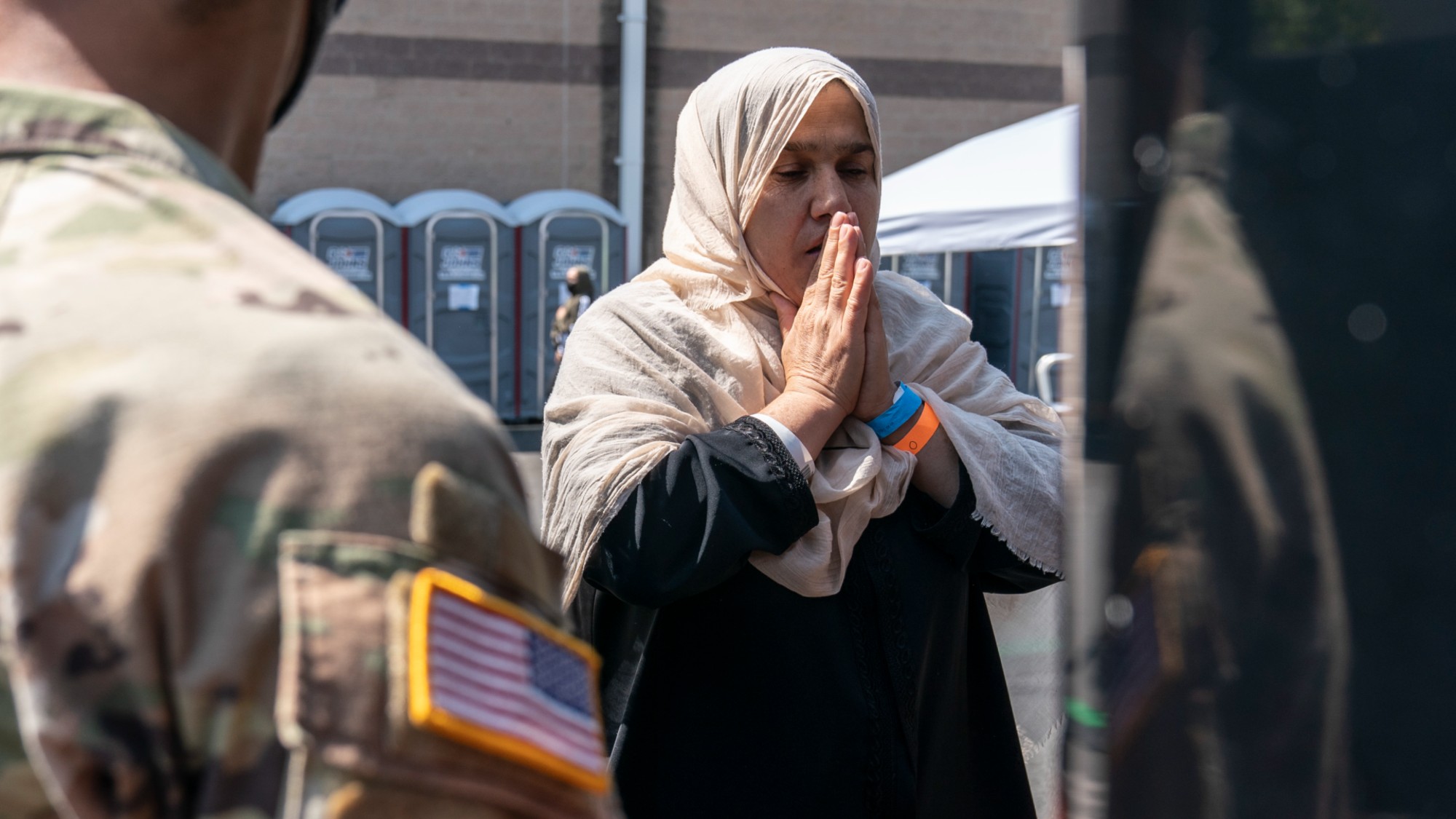How you can help refugees in the UK
Charities and local authorities issue guide to aid the integration of people seeking refuge in Britain

A free daily email with the biggest news stories of the day – and the best features from TheWeek.com
You are now subscribed
Your newsletter sign-up was successful
As Theresa May officially began the process of Brexit with a call to unite behind a "truly global Britain", charities and campaigners have released a new guide with the aim of aiding the integration of refugees in British society.
Citizens UK, together with the Rural Refugee Network and the Entrepreneurial Refugee Network (Tern) have launched "Welcoming Syrian Refugees: An introductory guide" as part of the Refugees Welcome campaign led by Labour peer Lord Alf Dubs, who himself fled the Nazis as a Kindertransport refugee.
Citizens UK executive director, Neil Jameson, said: "Many people have been contacting us saying they want to help and it became clear we needed practical guidance spelling out what help, what finances and what level of commitment would be necessary, if we were to successfully help resettle refugees here.
The Week
Escape your echo chamber. Get the facts behind the news, plus analysis from multiple perspectives.

Sign up for The Week's Free Newsletters
From our morning news briefing to a weekly Good News Newsletter, get the best of The Week delivered directly to your inbox.
From our morning news briefing to a weekly Good News Newsletter, get the best of The Week delivered directly to your inbox.
"We hope this guide will enable faster rates of resettlement in communities, demonstrating that the UK has the capacity and the appetite to resettle greater numbers of refugees. It is also hoped that the guide will inspire other teams to come together to aid resettlement, providing them with the knowledge and confidence to turn their good intentions into practical help."
The launch comes on the back of the government's decision to cap the number of Syrian refugee children entering the country under the so-called Dubs Amendment.
Ministers announced earlier this year that numbers would be capped at 350, despite campaigners' saying they had been promised that around 3,000 lone refugee children from camps in Europe would be brought to the UK, says The Guardian.
A subsequent report published by the home affairs select committee suggested that up to 4,000 extra children could be sheltered if central funding was provided.
A free daily email with the biggest news stories of the day – and the best features from TheWeek.com
What is the guide?
"Following last summer's refugee crisis it became apparent that while a number of groups across the UK had managed to help resettle refugees quickly, many more were in need of help and guidance," said Julia Thistleton, of the Rural Refugee Network.
Welcoming Syrian Refugees attempts to alleviate this by offering practical advice to people, groups and community organisations on how they can help to resettle Syrian refugees. It also offers step-by-step information on how to form groups and approach local authorities and what it necessary for the groups to provide.
How can people help?
The guide seeks to codify practices already been taking place up and down the country, including donating money or goods, volunteering at clothes or food banks, offering living space for those claiming asylum and lobbying local government officials.
Direct donation pages can be found on the websites of groups such as Refugee Action, which helps those who have made it to the UK, and the Refugee Council, which works directly with refugees and asylum-seekers across a range of financial, legal, health and training issues. Both organisations can also point people towards more localised initiatives they may want to donate directly to. The British Red Cross also provides a list of organisations that need volunteers or support.
Doctors of The World UK, which provides care to vulnerable people, runs clinics staffed by volunteers to provide practical information for refugees on how to book a doctor's appointments and receive medical attention in the UK.
Demand for living space for refugees is constantly increasing, with Assist in Sheffield, the Boaz Trust in Manchester and Housing Justice in London all relying on volunteers. They are always looking for more people willing to give up space in their home, says The Guardian. Other local charities can also be contacted for more ad-hoc arrangements.
Citizens UK is the first port of call for lobbying local officials. So far, their Refugees Welcome campaign has persuaded 44 local authorities to offer 3,097 places to Syrian refugees. It's also identified 700 private landlords offering properties, persuaded a dozen universities to offer £3.5m of scholarships for refugees and in 2015, challenged David Cameron to resettle at least 1,000 people before Christmas.
What's next on the agenda for the Refugees Welcome campaign?
Campaigners are urging the government to grant refugee children the right to apply for family members to join them in the UK, reports The Guardian. Amnesty says the UK is one of only two European countries, along with Denmark, which denies this opportunity for refugee children.
MPs on the home affairs select committee last year criticised the system, saying: "It seems to us perverse that children who have been granted refugee status in the UK are not then allowed to bring their close family to join them in the same way as an adult would be able to do."
But the Government rejected the calls, saying it would create "perverse incentives".
A spokesman said: "Widening our refugee family reunion criteria to allow children to sponsor family members would create perverse incentives for them to be encouraged, or even forced, to leave their family, risk hazardous journeys and seek to enter the UK illegally in order to sponsor relatives,"
-
 The Olympic timekeepers keeping the Games on track
The Olympic timekeepers keeping the Games on trackUnder the Radar Swiss watchmaking giant Omega has been at the finish line of every Olympic Games for nearly 100 years
-
 Will increasing tensions with Iran boil over into war?
Will increasing tensions with Iran boil over into war?Today’s Big Question President Donald Trump has recently been threatening the country
-
 Corruption: The spy sheikh and the president
Corruption: The spy sheikh and the presidentFeature Trump is at the center of another scandal
-
 How corrupt is the UK?
How corrupt is the UK?The Explainer Decline in standards ‘risks becoming a defining feature of our political culture’ as Britain falls to lowest ever score on global index
-
 The high street: Britain’s next political battleground?
The high street: Britain’s next political battleground?In the Spotlight Mass closure of shops and influx of organised crime are fuelling voter anger, and offer an opening for Reform UK
-
 Is a Reform-Tory pact becoming more likely?
Is a Reform-Tory pact becoming more likely?Today’s Big Question Nigel Farage’s party is ahead in the polls but still falls well short of a Commons majority, while Conservatives are still losing MPs to Reform
-
 Memo signals Trump review of 233k refugees
Memo signals Trump review of 233k refugeesSpeed Read The memo also ordered all green card applications for the refugees to be halted
-
 Trump limits refugees mostly to white South Africans
Trump limits refugees mostly to white South AfricansSpeed Read The administration is capping the number of refugees at 7,500
-
 Taking the low road: why the SNP is still standing strong
Taking the low road: why the SNP is still standing strongTalking Point Party is on track for a fifth consecutive victory in May’s Holyrood election, despite controversies and plummeting support
-
 It is 'beyond time for us to seek bipartisan solutions' for Afghanistan
It is 'beyond time for us to seek bipartisan solutions' for AfghanistanInstant Opinion Opinion, comment and editorials of the day
-
 What difference will the 'historic' UK-Germany treaty make?
What difference will the 'historic' UK-Germany treaty make?Today's Big Question Europe's two biggest economies sign first treaty since WWII, underscoring 'triangle alliance' with France amid growing Russian threat and US distance